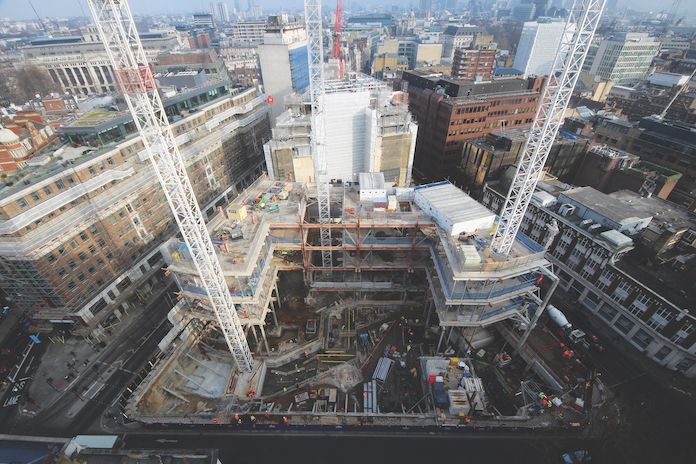Successfully Resolving Construction Disputes
Construction Disputes
Construction Disputes are time consuming, costly, can damage reputations and relationships.
There are things Employers, Contractors, Subcontractors can do to avoid disputes especially in the early stages. The eutopia is to avoid construction disputes entirely.
WHY DO CONSTRUCTION DISPUTES ARISE?
Disputes arise due to disagreements between parties. They often relate to breaches of standard form construction contracts, but that is not always the case.
Common causes of construction disputes include:
- The failure to understand the conditions of the contract
- Project delays / extensions of time / loss and expense
- The failure to operate the contract
- Poor quality claims and the records which are provided in support.
- A dispute itself is not generally regarded as a breach of contract but may become one and even lead to a termination event. The most sensible way of managing a dispute is to avoid a dispute entirely by taking the relevant steps in the planning and implementation phases of a project.
REDUCE THE POSSIBILITY
To reduce the probability of an issue on construction projects, parties often need to put measures in place such as:
- Carefully plan and programme the works, remember the old saying, measure twice cut once
- Read and understand the contract
- Avoid onerous terms
- Ensure that programmes and timescales are realistic
- Plan for delays and disruption
- Record and monitor any delays as the works progress
CONSTRUCTION DISPUTE RESOLUTION OPTIONS
There are several alternative dispute resolution (ADR) options available to parties and contract drafters. The main forms available are:
Negotiation
This is easily the most common type of dispute resolution, carried out in many forms every day by just about everybody all around the world. It is where the parties themselves attempt to settle their differences informally and directly.
Mediation
Mediation is generally the next step on from negotiation. When parties cannot resolve their differences through direct negotiation, they will often involve a third party to help them in their negotiations - to try and mediate. The aim of the mediator is to bring about a resolution acceptable to both parties; a solution that they are able to live with. It is therefore arguable that mediation is not the recent phenomenon many believe it to be but a practice that has been occurring since time immemorial.
The mediator is the third-party, treating everyone fairly and encouraging constructive communication between the parties in order to achieve a realistic, workable agreement that represents a win/win outcome for both. Mediation is an informal, confidential process that is able to deal with a wide variety of issues. It explores the feelings of the parties and their underlying interests. Unlike litigation, it focuses on the future and is not concerned with establishing rights with reference to events in the past.
Mediation allows people to communicate. It explores parties’ feelings and it allows the parties to participate fully in the making of decisions about how to resolve the dispute.
It is private and non-binding, although the agreement reached by the parties can become a legally binding contract if required.
Adjudication
Adjudication is a legal process by which a neutral person (the Adjudicator) reviews the arguments, which may include legal arguments, presented to them by the parties. The adjudicator will reach a decision determining the rights and obligations of the parties.
The most common types of dispute referred to adjudication are those arising under construction contracts that fall within the detailed definition contained in the Housing Grants, Construction and Regeneration Act of 1996. The decision of an adjudicator is binding on the parties, at least until a further process is invoked; e.g., arbitration or litigation.
Arbitration
Arbitration is a process, subject to statutory controls, whereby formal disputes are determined by a private tribunal of the parties’ choosing. It is a legal way of resolving disputes outside the courts. The decision (‘award’) of the arbitrator is imposed on the parties and is legally binding on both sides. The arbitrator is either agreed by the parties or can be nominated by an agreed professional institution such as CIArb.
Arbitration is voluntary because the parties to a contract have agreed to an arbitration clause. Once they have so agreed, either party may insist on arbitration, and in that sense, it is mandatory. Arbitration is almost invariably binding in its effect.
Litigation
Litigation is where a litigant takes his case to the courts for a judge to make a decision – occurs in virtually every jurisdiction. That decision is based on the law and, in the UK, case-precedent. It is a very formal process and conducted in public.
The judgment will be binding on the parties, subject to rights of appeal. The outcome cannot be predicted with any certainty and can depend entirely upon an individual judge’s interpretation of a statute and the evidence presented. The decision will be based upon legal rights and obligations. Inevitably, litigation is expensive, not just in monetary terms but also in terms of time – cases can take many years to reach court – and the stress associated with legal action.
WHAT TO DO IF A CONSTRUCTION DISPUTE OCCURS?
There is a high probability that a party to construction contracts will encounter a dispute at some point.
Once an issue occurs it is usually best for the parties that the dispute is resolved quickly. If there are no records or poor records, it is often difficult to backtrack and retrospectively analyse why or how the particular issue has occurred, I say this as parties often have to progress the works while also dealing with the dispute and memories often quickly fade. An obvious advantage of resolving a dispute quickly is that efforts can be solely focused on project completion and making money if the dispute is resolved swiftly. I have found that to do this successfully, a party generally requires good records to demonstrate its case and the right advice to guide them through the process. I frequently remind clients that it is much easier to collect records as the works progress rather than to carry out retrospective analysis once things have turned sour. As an example: tracking progress and recording delays as at the time takes very little time when the works are progressing and things are fresh in the mind. Reviewing files, diaries and photographs retrospectively often takes hours or days even for the simplest of tasks. Clients that follow my advice seem to do very well, those that do not keep me busy and help to pay for the bills.
In the American civil war, a confederate army general who was described as a born military genius once said “Get there first with the most men,”. That became one of the most often quoted statements of the war. Shortly after this, the principles changed for military tactics with the introduction of the machine gun!
In construction, conditions are changing all the time, but the success of a claim always seems to come back to the party which has the best records.
Perhaps in construction, we need to aim to “Get there first with the best records”.
If you would like a free consultation to discuss how you can “Get there first with the best records” and increase your prospect of success in a dispute, extension of time request, or even to potentially avoid a dispute altogether in the early stages, please do get in touch.
0161 298 1003




